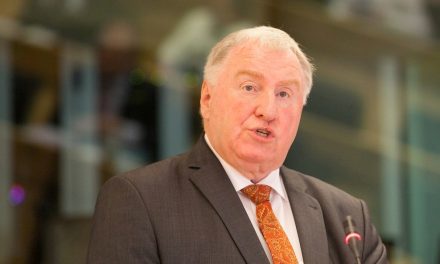President of the European Parliament between 1999 and 2002 (with the European People’s Party Group), Nicole Fontaine, a lawyer by profession, began her political career in 1984 as a Member of the European Parliament (1984-2002 and 2004-2009). After being appointed Alternate Minister for Industry from 2002 to 2004, she taught at Université Nice Sophia Antipolis, where she held a Jean Monnet ad personam chair for 5 years. She is currently teaching at the Institut d’Etudes Politiques de Paris and is also Affiliated Professor at the ESCP Europe Business School. Nicole Fontaine, along with journalist François Poulet-Mathis has co-authored the book “Brexit: An Opportunity?” (Auteurs du Monde, 2016)
On the occasion of Nicole Fontaine’s visit to Greece and speech on “Europe after Brexit: How to reinvent the project of a Europe with Unity and Solidarity?” at the French Institute of Greece (28.01), our sister publication Grèce Hebdo* spoke with her on the biggest challenges facing European integration, the consequences of Brexit and the EU ‘s relationship with the US in light of Donald Trump’s presidency.
What are the main challenges facing European integration right now?
Over the past 10 years, the EU fell ill. It fell ill because its institutions are perceived by the people as part of a constraining technocracy, because of lack of leadership and vision and finally because of its inability to anticipate and manage major global phenomena such as globalization, financial and migratory crises and the fight against terrorism. Unfortunately, as a result, the EU lost its citizens’ trust. So today, the priority for the EU is to rebuild itself. Having taken note of past mistakes, it is imperative that the EU is strengthened and able to meet its citizens’ expectations, to whom it had promised “an area of freedom, prosperity and solidarity”. The challenge is to restore this aspiration to its full potential and to make it a reality. In a turbulent world we have made our strong and united voice heard. For EU leaders, this is a historical responsibility.
Some analysts claim that Brexit is the beginning of the dismantling of the European project. Do you share this view?
Some had predicted that a Brexit would bring about the final destruction of an already ill Europe. While it is true that there was the risk of a “domino effect”, it soon became apparent that the negative effects of Brexit were mostly affecting the British. Only a few days after the result of the referendum, more than 3 million citizens signed a petition asking for a second referendum … this has never happened before! And today, opinion polls reveal that in the event of a new ballot, the result would be different.
Concerns are strong, despite Theresa May’s conjurations: the British living in Europe are concerned, as is the market and many businesses, some of which have decided to leave the UK. For my part, I always thought that, on the contrary, if Brexit happened, it could be an opportunity for Europe. An opportunity to clarify things, because the British entered the European Community in 1973 exclusively to benefit from the advantages of a large market, and they always refused and prevented the progress that would have made it possible to meet citizen expectations. An opportunity to give us a shock, and to invite European leaders to rethink Europe, making it stronger, more united, more effective. Today, with the election of Donald Trump to the Presidency of the United States, this is not just an opportunity but an imperative necessity.
In your opinion, does Donald Trump’s election move the United States further away from Europe and weaken international cooperation?
The positions presented by Trump during his electoral campaign – some of which were immediately implemented since his inauguration – are extremely worrying. Of course, commercial competition between the United States and Europe has always existed, as we have seen through several emblematic disputes within the WTO. The Presidents of the USA that preceded Trump did not really want a political Europe that interfered in the resolution of world conflicts. The friendship however between the United States and Europe remained, through our cooperation to defeat Nazism during the World War II, an unshakeable bond.
Today, President Trump is changing the geopolitical map with decisions that are likely to exacerbate disorder around the world, and the European Union has a responsibility to react. The threat of calling into question the solidarity of NATO member states in the event of an attack compels the European Union to establish its own defenses.
The coalition between United States, Russia and Iran to bring order to the Middle East, especially Syria, forces the European Union to form a real common foreign policy and to intervene in the name of the values on which the European project is based. Thus, international cooperation is without a doubt in our future and the European Union must seize this opportunity to enhance its influence.
*Interview: Costas Mavroidis amd Maria Oksouzoglou, translation to English: Ioulia Livaditi
TAGS: EU POLITICS | GOVERNMENT & POLITICS














